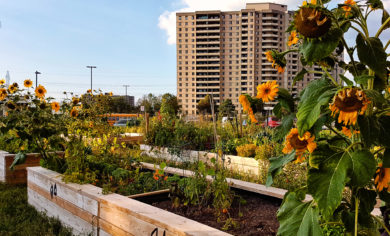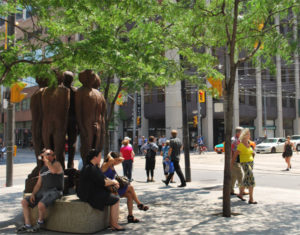 The government of Ontario wrapped up 2020 budget consultations on February 11th.
The government of Ontario wrapped up 2020 budget consultations on February 11th.
To attend an in-person session, you had to phone or email for information, but there was also an online survey and a written submission form.
Although the submission deadline is past, it is never too late to contact your local MPP.
Below is the submission sent by PCM member, Sue Craig following this outline of priorities provided by the government (and within the 500 word limit):
We want to hear your feedback and your innovative and creative ideas to help Build Ontario Together by focusing on ways to:
- make life more affordable
- prepare people for jobs
- create a more competitive businesses environment
- connect people to places
- build healthier and safer communities
- make government smarter
(from 2020 Budget consultations)
Sirs/Mesdames:
As an environmentalist, I seek measures that will provide a just transition to a world not threatened with mass species extinction caused by global warming.
Here is how this fits with the government’s priorities (in 490 words):
1. Make life more affordable
-

Photo by C. Pang, winner of the Picture2050 photo contest
Invest in affordable housing.
Government investment in building carbon-neutral, high-density housing and/or acquiring and retrofitting existing housing units, then renting them out at prices that are truly affordable relative to income, will make life more affordable for tenants as well as providing jobs for the builders and retrofitters. These housing units will be less costly to maintain because of reduced energy requirements. - Encourage planning that places relatively dense housing developments close to both shopping and workplaces.
This will reduce the need for cars and render public transit more economic to operate so that residents will pay less in living costs.
Planning should include plenty of green space for affordable recreation and for trees to absorb carbon from the atmosphere. - Invest in renewable energy so that as dangerous nuclear operations are shut down, new supply will come on line to keep prices in line, saving everyone money.
 2. Prepare people for jobs
2. Prepare people for jobs
- Education is key.
Employ more teachers in what are essentially “green” jobs, reduce class sizes, and support all special needs students with the help they need to move into rewarding employment. - Support apprenticeships, especially in key areas of work necessary to reducing greenhouse-gas emissions, such as renewable energy, and building and retrofitting buildings to new green standards.
3. Create a more competitive businesses environment
- Crack down on industries that today are virtual monopolies: “break up the trusts.”
- Create the legal framework for worker-consumer co-ops, especially in areas such as the production of necessities where local production can replace or reduce imports. Provide seed money and expert advice to groups starting these co-ops.
Businesses will have to be responsive to consumer demand at the local level.
4. Connect people to places
- Invest in public transit and in electrifying it where possible.
Increase bus, rail and light rail capacity within and between cities.
Consider adding freight areas to more passenger transit modes to conserve energy (and costs) while providing frequent delivery. - This investment should include reducing and even eliminating fares in some transit modes to encourage travellers and commuters to use public transit.
5. Build healthier and safer communities
 See above: If people are close to their jobs, shopping, recreation and public services such as health care, and above all social contact with each other, they will be healthier and safer (and consume less energy).
See above: If people are close to their jobs, shopping, recreation and public services such as health care, and above all social contact with each other, they will be healthier and safer (and consume less energy).
6. Make government smarter
- Government will be smarter when it puts greater equality, and the needs of the vast majority ahead of the short-sighted wants of the rich and powerful.
It will be smarter when it understands that preventing further climate change and mitigating it is essential to the very survival of all of us, rich or poor.
Submitted by Sue Craig
Follow PCM on Social Media